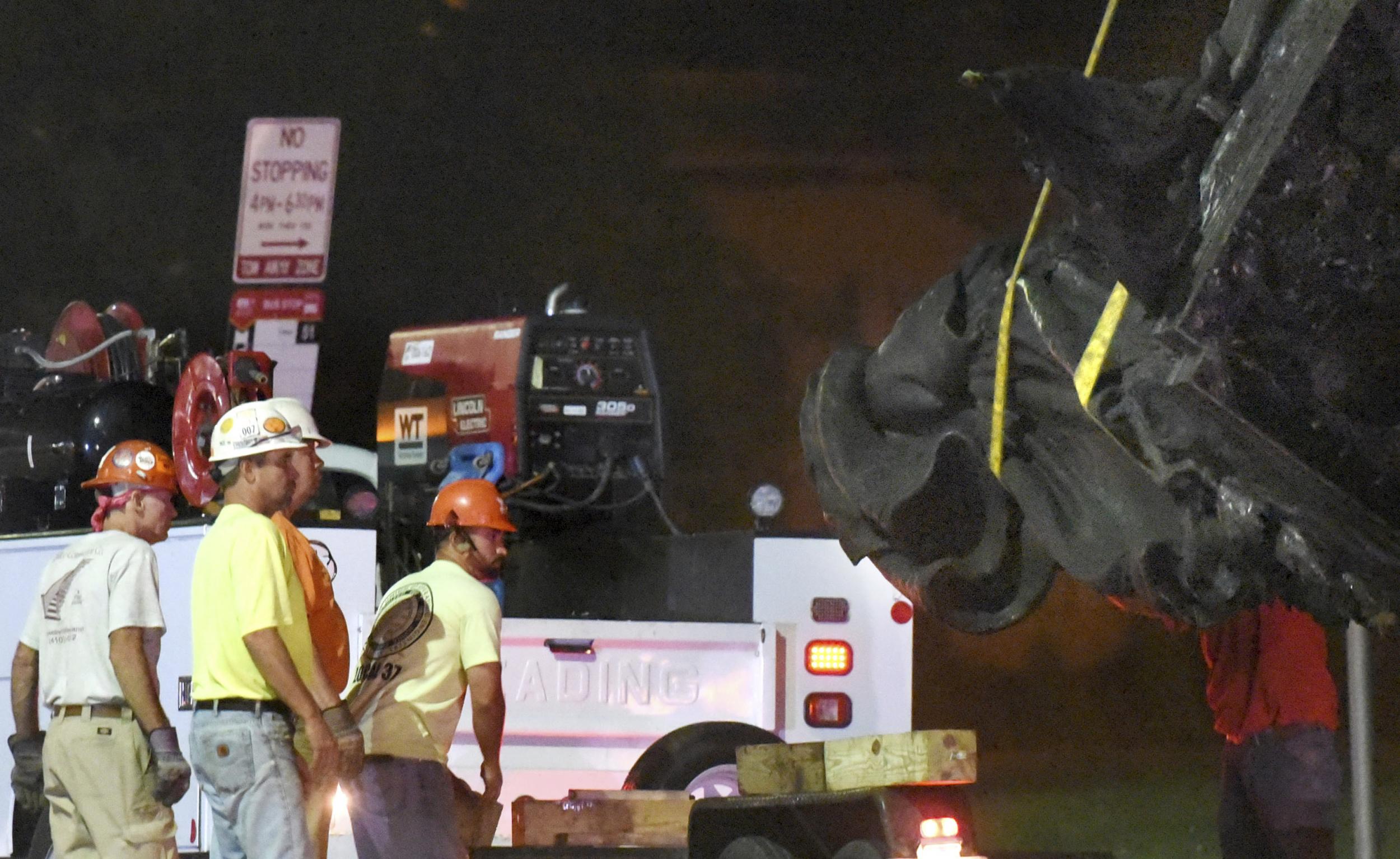US cities rush to take down Confederate monuments after Charlottesville
But there are a lot of monuments to be taken down

Your support helps us to tell the story
From reproductive rights to climate change to Big Tech, The Independent is on the ground when the story is developing. Whether it's investigating the financials of Elon Musk's pro-Trump PAC or producing our latest documentary, 'The A Word', which shines a light on the American women fighting for reproductive rights, we know how important it is to parse out the facts from the messaging.
At such a critical moment in US history, we need reporters on the ground. Your donation allows us to keep sending journalists to speak to both sides of the story.
The Independent is trusted by Americans across the entire political spectrum. And unlike many other quality news outlets, we choose not to lock Americans out of our reporting and analysis with paywalls. We believe quality journalism should be available to everyone, paid for by those who can afford it.
Your support makes all the difference.In the fallout from the violent rally in Charlottesville last weekend, a renewed sense of urgency to remove Confederate monuments has taken hold in towns and municipalities across the country.
Under the cover of darkness, workers in Baltimore removed four statues memorialising Confederate figures, after the city council voted unanimously to make moves immediately. Statues in Lexington, Kentucky, are set to be taken down as well, pending approval from a state historical board. A woman in Durham, North Carolina was recently arrested for allegedly tearing down a statue there.
“We cannot continue to glorify a war against the United States of America fought in the defence of slavery,” North Carolina Governor Roy Cooper later wrote in a post on Medium in what was a light condemnation of the events in Durham, and a call for official action. “These monuments should come down.”
The movement to take down the statues — which some argue represent a violent and racist history, while others say are simply a tribute to Southern heritage — echoes the zeitgeist seen in 2015, after nine black churchgoers were murdered in cold blood by a white supremacist hoping to start a race war. Photographs of the killer showed him posing with the Confederate flag, sparking outrage that led to efforts across the South to remove that flag from public grounds. The recent rally in support of keeping a Confederate monument also drew blood, and now the rush to remove the monuments is the topic of discussion in many communities with similar statues or plaques.
The debate over Confederate monuments isn’t exactly new, however. Public displays honouring Confederate figures and ideas can be seen all across the United States, and many localities have been considering removal for a long time.
There were some victories for the anti-Confederate monument camp in the absence of national tragedy, too: New Orleans removed four statues earlier this year, for example. Activists in Hollywood, Florida, tell The Independent that their years-long effort to rename streets honouring Confederate figures is on the verge of succeeding.
But, the very fact that this is being debated after a white supremacist rally in Charlottesville —ostensibly to protest the removal of a statue of Confederate General Robert E Lee — turned terribly wrong, shows how polarising the issue can be. Tensions were so high in Charlottesville that the planned rally needed to be disbursed almost immediately after its scheduled starting time, but clashes continued between demonstrators and counter protesters. That violence culminated in the death of a woman after a white supremacist allegedly drove his car through a crowd.
There are more than 1,500 Confederate monuments or symbols on public grounds around the country, according to the Southern Poverty Law Centre. That includes more than 700 monuments, and more than 100 public schools named after Confederate generals.
Join our commenting forum
Join thought-provoking conversations, follow other Independent readers and see their replies
Comments